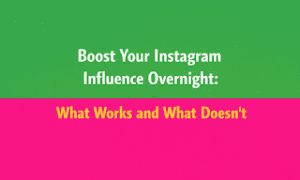Mental health professionals recognize the potential of social media. But, they also say that social media can have long-standing harmful implications. Addiction treatment providers from United Recovery CA, who offer dual diagnosis treatment, have become wary of the negative effects of social media.
Over the past few years, we have watched our younger generations become addicted to social media. Data proves that social media such as TikTok and Instagram are negatively impacting the mental health of young people, especially teen girls. This has led to widespread outrage from parents with studies showing that 67% of parents are concerned about how much their children use social media.
The New Bill That Challenges Tiktok And Instagram
With these concerns in mind, California lawmakers have proposed a new bill. Under Assembly Bill No. 2408, companies will be subject to accountability for getting minors addicted to their platforms.
The bill says that companies can be sued if they have knowingly designed, developed, maintained, or implemented features with the goal to get child users addicted to them. Jordan Cummangham – a California Assembly Member- has watched his own children develop eating disorders and internet addiction because of social media. He maintains that social media giants should be held liable for causing psychiatric damage to child-age users.
The Impact On Companies
The bill is a retroactive one and would put companies at risk of being taken to court and sued. This is a major push as it would threaten industry giants and allow California’s Department of Justice to litigate trials against them. It would also challenge federal immunities that are put in place thanks to the U.S. Communications Decency Act.
However, since the bill focuses on algorithms instead of content, it could see some success if implemented. It threatens big tech companies and lets them know that people wish to keep their kids safe from the major health issues caused by Tiktok and Instagram.
The Dangers Of Social Media
Misinformation on the internet is widespread. TikTok has become the new, trendy place to get medical advice from. However, studies show that medical advice about many issues that children face is incorrect.
TikTok is filled with advice about subjects like alcoholism, eating disorders, sex addiction, and mental health. Yet, experienced and licensed professionals are not the ones posting such videos. The situation on Instagram is similar.
Additionally, both platforms promote an ideal of perfection and physical attractiveness. This is very damaging to impressionable young people who see their inability to meet social media standards as detrimental.
Many young people do not realise that the posts they see on social media are heavily edited and they begin believing that is the reality they should strive for. They are also so swept up by the algorithms that they do not notice when they become addicted to platforms such as Instagram or Tiktok.
Social Media And Mental Health
Mental Health providers have linked psychiatric issues such as depression, social anxiety, and dual diagnoses with social media. A dual diagnosis means that a person has a mental health disorder as well as an addiction. Social media itself can become an addiction as from its excessive use, we can see signs of addiction.
Teens and kids often show withdrawal-like symptoms when they go off social media. They also often show symptoms like euphoria with social media use. A building tolerance as they spend more time on platforms like Instagram and Tiktok, and conflict when they do not get their wanted time online.
Along with this, social media creates an atmosphere where a child with a dual diagnosis may feel isolated. Instagram and TikTok can influence them through misinformation and addictive algorithms.
This proves to be a challenge for mental health providers who aim to treat dual-diagnosis patients as social media stigmatises and misinforms them about mental health. It can make the child abandon real life interactions in favour of online ones.
The negative effects of social media were most seen during the pandemic. It proved to be a crisis for mental health providers, especially those who were treating dual diagnosis patients. Covid caused a massive shift that made people engage with online communities more frequently.
Tiktok and Instagram, in particular, saw many more users flocking to their platforms. So both social media use and mental health issues went up during the pandemic which worried mental health professionals.
Social Media Is Not All Bad
While social media can cause damage to mental health, it can also be a great place to find community. Social media has communities for people who struggle with mental health, drug addiction, domestic violence, dual diagnosis, and more. Tiktok and Instagram can be great platforms where children and adults alike can join groups to get support and advice.
Social media can also be a great tool for education. Many social media influencers document their struggles and show the reality of being mentally ill, an addict, or a survivor of abuse. People on social media can be very empathetic, even to strangers. On apps like Instagram or Tiktok, people can educate others, find their voice and motivate less experienced people.
Summary
Social media platforms like Tiktok and Instagram can have both positive and negative impacts on people. When thinking about mental health, dual diagnosis, and lawmaking, we need to consider how much social media we should be consuming.
Parents worry about their children’s excessive social media use and social media addictions.
A new California bill is being considered which would allow people to sue industry giants for making their social media algorithms purposely addictive. The bill will hold tech giants accountable for their actions and give parents more power to keep their children safe.
Social media addiction is very real and misinformation spread on platforms can be very harmful and can make mental health struggles worse, especially for people with a dual diagnosis. Social media does have various benefits that can let struggling people engage with communities and find support networks.

































